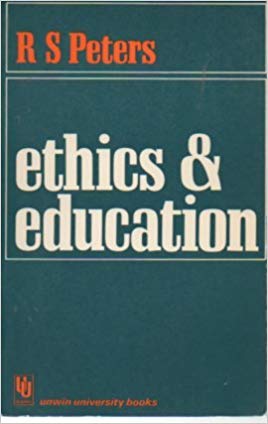 Title: Ethics and education
Title: Ethics and educationPublished by: Allen and Unwin
Release Date: 1970
Genre: Philosophy of education
Pages: 333
ISBN13: 978-0043700327
This book introduced an analysis of the concept of education that was, and remains, quite unique. In Chapter 1, Peters used a variety of conceptual comparisons to disclose strongly held intuitions that lie deep in our language and that are quite distinct from the loose (and almost worthless) uses of the word that are prevalent, typically allowing education commonly to be confused with vocational preparation or reducing it to whatever conventional schooling might do.
His analysis brought forward the idea of the "educated person" (educated "man" in his day) an idea that goes back several thousand years. This view dominated philosophy of education in the UK and Australasia for a generation, and although it has been largely abandoned, it has never been superseded. The ideal he disclosed (and that is still buried in our language use) is that of a way of life of the historical ruling aristocracy of Europe - one which is no longer palatable for a host of reasons. The legacy, though, is our contemporary educational problematic. The concept has no obvious successor, and there has been almost no attempt to provide one. Human freedom and dignity suffer as a result.
Pivotal chapters in the book, in terms of his philosophical and educational preoccupations are Chapter 1, "The Criteria of education", and Chapter 5, "Worthwhile activities". The criteria of education disclose something like qualities of a traditional "liberal education", which is pursued, not to supply means to some further ends, but as a good in itself - for its own sake. What is this intrinsic value? This issue becomes a theme throughout his work - the issue of justification.
"Worthwhile activities" contains the statement of his "transcendental argument" - a justification of education that is both remarkable and peculiar. "Peculiar" that our justification of education should end up so abstractly principled; so stripped of ethical flesh and human experience.
It is quite remarkable how little attention is ever paid to this problem of education anywhere else in educational thought and practice - and how glaring should be the consequences of this failure. One might even say: the concept of education, the purpose it expresses, and the justification for pursuing that purpose - are the core educational questions - and we almost never discuss any of these things with a view to remedying the awful things that are done in the name of education instead.
Purchasing information: Amazon



